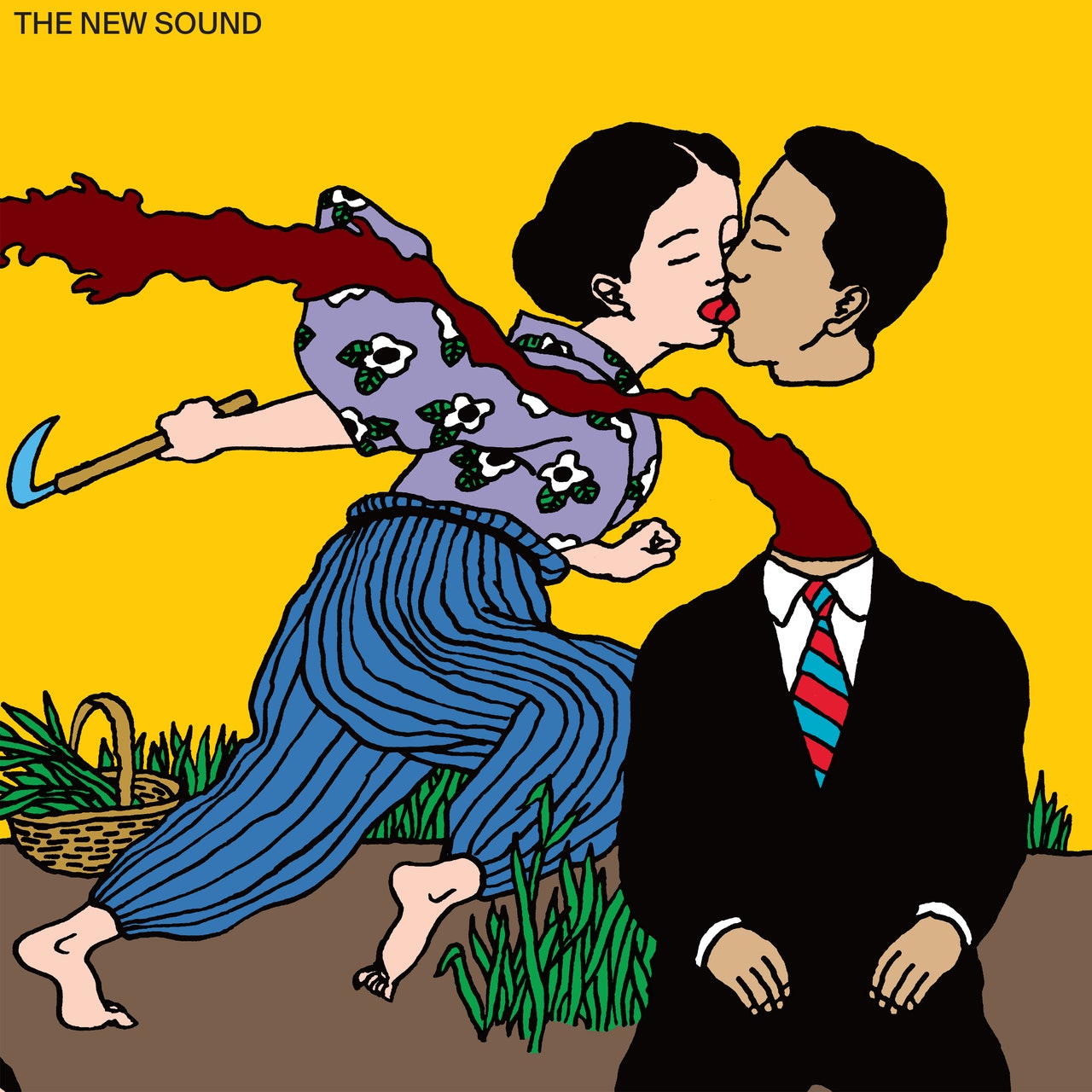This guy knows he shouldn’t say the word “pussy.” The protagonist of Geordie Greep’s “Holy, Holy” has just spent two minutes yapping at a woman about his sexual reputation—how well known he is among the Japanese and French Guyanese, how he’s like a god to the “jihadis” and “revolutionaries”—when he stumbles into a wildly distasteful pickup line. “I’ll bet your pussy is holy, too,” he says, chomping down on the word like it’s a cocktail straw between rear molars. He doesn’t want to say it, you can tell, but he can’t help himself, torn as he is between good manners and a crippling horniness that can only come from being profoundly lonely.
That strained “pussy” is the linchpin of The New Sound, the former black midi frontman’s debut solo record. This is an album full of dudes who are beset by a misery they can’t communicate, one that forces them into saying and doing things they know they probably shouldn’t. Across its 62 minutes, men in bars and nightclubs and boardrooms seem almost as if they’re competing to see who can abase themselves the furthest. These men aren’t gigachads or alphas on the hunt, though most of them aspire to both. They are, to a man, ridiculous. “I would’ve disemboweled myself just to hold your hand,” one declares, while another, inflamed by a sex worker with college aspirations, insists that he’s curious “to see what you think of Proust.” They are failures on their own terms—seldom do they seem to successfully bed a woman, even when they’re attempting to pay for sex—which makes their failures of ethics and good taste even starker.
Depending on your appreciation of over-the-top genre workouts à la Frank Zappa and Mr. Bungle, it’s either a deft artistic gambit or just delicious irony that these unsubtle, easily hateable characters are the focal point of unsubtle music that often risks being incredibly annoying. As a satirist, Greep shares an absurdist humanism and love of classic songwriting with Randy Newman (though it’s difficult to picture the latter singing a line like “You can cum more than 100 stallions”), but he lets both play out as minor elements within a turbulent, mile-a-minute style. Across The New Sound, his characters chatter their way through a pub mix of choppy salsa, mid-century showtunes, smooth jazz, Isley Brothers guitar disco, big-budget samba, and a dozen other styles you could imagine the characters in a Steely Dan song listening to (including the music of Steely Dan).
